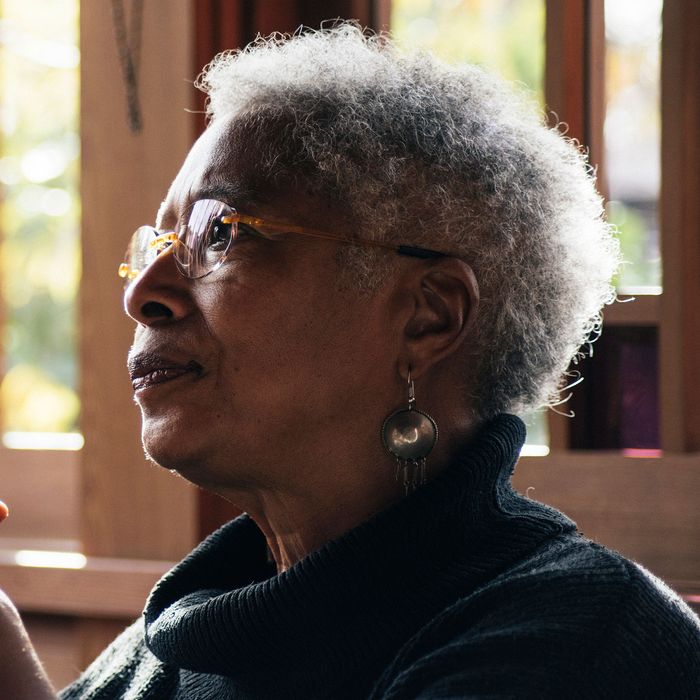Alice Walker’s Terrible Anti-Semitic Poem Felt Personal — to Her and to Me
Intelligencer
New York Magazine
2018-12-28
Nylah Burton

Photo: Peter Earl McCollough/The New York Times/Redux |
When I first read Alice Walker’s The Color Purple, I leaned into every word, inhaling Celie’s tragic and triumphant story. In Celie, I felt the presence and pain of my female family members brought up in rural Alabama. In Walker’s unflinching descriptions of misogyny, domestic violence, homophobia, and incest, I saw an open accounting of issues buried deep within the larger southern black community — and within my own family.
Above all, I was drawn into The Color Purple because it was haunted by ghosts — the ghosts of Alice Walker’s past. Eloquently and bravely, she was able to confront generational trauma by telling a universal tale that still felt faithful to her own story. And it was Walker’s ability to throw open the shutters and allow her ghosts — our ghosts — into her writing that made it so revelatory. It cemented her standing as an acclaimed novelist, a civil-rights icon, and a formidable thought leader in the field of black feminism.
That changed abruptly two weeks ago, after the New York Times invited Walker to list her favorite books in its weekly “By the Book” column. She took the opportunity to promote David Icke’s And the Truth Shall Set You Free, which contains some of the most hateful anti-Semitic lies ever to be printed between covers. As excerpted in the Washington Post, Icke’s book alleged that a “small Jewish clique” had created the Russian Revolution and both World Wars, and “coldly calculated” the Holocaust to boot. Icke has also accused Jews (among others) of being alien lizard people. After a week of criticism, Walker doubled down in her assessment of Icke’s indefensible work, calling him “brave” and dismissing charges of anti-Semitism as an attack on the pro-Palestinian cause…
…In 1967, Alice Walker married a young Jewish civil-rights lawyer named Mel Leventhal. Their interracial marriage — the first such legal union in the state of Mississippi — was still illegal in Walker’s home state of Georgia at the time. Leventhal’s mother was also deeply opposed to the union, and his other family members didn’t allow Alice to attend family events. “Leaving no question about how she felt about her son’s marriage to a shvartse (a pejorative Yiddish term for a black person), Miriam Leventhal sat shiva for her son, mourning him as dead,” Evelyn White writes in Alice Walker: A Life. A source who knows the family told me that Mel preferred to ignore rather than confront his family’s bigotry. This caused Walker to feel increasingly isolated and resentful. The marriage ended in 1976, after the pair had one daughter together, named Rebecca…
Read the entire article here.
